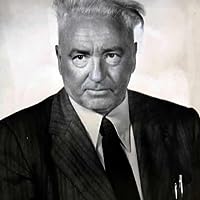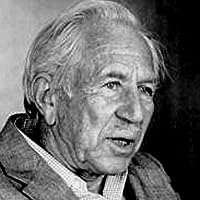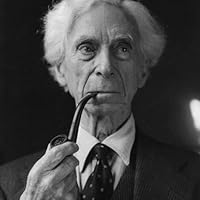Suppression Quotes
Quotes tagged as "suppression"
Showing 1-30 of 97

“When, however, one reads of a witch being ducked, of a woman possessed by devils, of a wise woman selling herbs, or even of a very remarkable man who had a mother, then I think we are on the track of a lost novelist, a suppressed poet, of some mute and inglorious Jane Austen, some Emily Bronte who dashed her brains out on the moor or mopped and mowed about the highways crazed with the torture that her gift had put her to. Indeed, I would venture to guess that Anon, who wrote so many poems without signing them, was often a woman.”
― A Room of One’s Own
― A Room of One’s Own

“As long as you keep secrets and suppress information, you are fundamentally at war with yourself…The critical issue is allowing yourself to know what you know. That takes an enormous amount of courage.”
― The Body Keeps the Score: Brain, Mind, and Body in the Healing of Trauma
― The Body Keeps the Score: Brain, Mind, and Body in the Healing of Trauma

“Men know that women are an overmatch for them, and therefore they choose the weakest or the most ignorant. If they did not think so, they never could be afraid of women knowing as much as themselves.”
― A Journey to the Western Islands of Scotland and The Journal of a Tour to the Hebrides
― A Journey to the Western Islands of Scotland and The Journal of a Tour to the Hebrides

“It is a terrible error to let any natural impulse, physical or mental, stagnate. Crush it out, if you will, and be done with it; or fulfil it, and get it out of the system; but do not allow it to remain there and putrefy. The suppression of the normal sex instinct, for example, is responsible for a thousand ills. In Puritan countries one inevitably finds a morbid preoccupation with sex coupled with every form of perversion and degeneracy. ”
― Moonchild
― Moonchild

“[M]en, though they know full well how much women are worth and how great the benefits we bring them, nonetheless seek to destroy us out of envy for our merits. It's just like the crow, when it produces white nestlings: it is so stricken by envy, knowing how black it is itself, that it kills its own offspring out of pique.”
― The Worth of Women: Wherein Is Clearly Revealed Their Nobility and Their Superiority to Men
― The Worth of Women: Wherein Is Clearly Revealed Their Nobility and Their Superiority to Men

“Yet if women are so flighty, fickle, changeable, susceptible, and inconstant (as some clerks would have us believe), why is it that their suitors have to resort to such trickery to have their way with them? And why don't women quickly succumb to them, without the need for all this skill and ingenuity in conquering them? For there is no need to go to war for a castle that is already captured. (...)
Therefore, since it is necessary to call on such skill, ingenuity, and effort in order to seduce a woman, whether of high or humble birth, the logical conclusion to draw is that women are by no means as fickle as some men claim, or as easily influenced in their behaviour. And if anyone tells me that books are full of women like these, it is this very reply, frequently given, which causes me to complain. My response is that women did not write these books nor include the material which attacks them and their morals. Those who plead their cause in the absence of an opponent can invent to their heart's content, can pontificate without taking into account the opposite point of view and keep the best arguments for themselves, for aggressors are always quick to attack those who have no means of defence. But if women had written these books, I know full well the subject would have been handled differently. They know that they stand wrongfully accused, and that the cake has not been divided up equally, for the strongest take the lion's share, and the one who does the sharing out keeps the biggest portion for himself.”
― Der Sendbrief vom Liebesgott / The Letter of the God of Love
Therefore, since it is necessary to call on such skill, ingenuity, and effort in order to seduce a woman, whether of high or humble birth, the logical conclusion to draw is that women are by no means as fickle as some men claim, or as easily influenced in their behaviour. And if anyone tells me that books are full of women like these, it is this very reply, frequently given, which causes me to complain. My response is that women did not write these books nor include the material which attacks them and their morals. Those who plead their cause in the absence of an opponent can invent to their heart's content, can pontificate without taking into account the opposite point of view and keep the best arguments for themselves, for aggressors are always quick to attack those who have no means of defence. But if women had written these books, I know full well the subject would have been handled differently. They know that they stand wrongfully accused, and that the cake has not been divided up equally, for the strongest take the lion's share, and the one who does the sharing out keeps the biggest portion for himself.”
― Der Sendbrief vom Liebesgott / The Letter of the God of Love

“I want to be spoiled like a child. Cry to my heart's content. But I can only suppress my feelings...”
―
―

“Not all men (and especially the wisest) share the opinion that it is bad for women to be educated. But it is very true that many foolish men have claimed this because it displeased them that women knew more than they did.”
― The Book of the City of Ladies
― The Book of the City of Ladies

“Living with life is very hard. Mostly we do our best to stifle life--to be tame or to be wanton. To be tranquillised or raging. Extremes have the same effect; they insulate us from the intensity of life.
And extremes--whether of dullness or fury--successfully prevent feeling. I know our feelings can be so unbearable that we employ ingenious strategies--unconscious strategies--to keep those feelings away. We do a feelings-swap, where we avoid feeling sad or lonely or afraid or inadequate, and feel angry instead. It can work the other way, too--sometimes you do need to feel angry, not inadequate; sometimes you do need to feel love and acceptance, and not the tragic drama of your life.
It takes courage to feel the feeling--and not trade it on the feelings-exchange, or even transfer it altogether to another person. You know how in couples one person is always doing all the weeping or the raging while the other one seems so calm and reasonable?
I understood that feelings were difficult for me although I was overwhelmed by them.”
― Why Be Happy When You Could Be Normal?
And extremes--whether of dullness or fury--successfully prevent feeling. I know our feelings can be so unbearable that we employ ingenious strategies--unconscious strategies--to keep those feelings away. We do a feelings-swap, where we avoid feeling sad or lonely or afraid or inadequate, and feel angry instead. It can work the other way, too--sometimes you do need to feel angry, not inadequate; sometimes you do need to feel love and acceptance, and not the tragic drama of your life.
It takes courage to feel the feeling--and not trade it on the feelings-exchange, or even transfer it altogether to another person. You know how in couples one person is always doing all the weeping or the raging while the other one seems so calm and reasonable?
I understood that feelings were difficult for me although I was overwhelmed by them.”
― Why Be Happy When You Could Be Normal?

“Was not Hypatia the greatest philosopher of Alexandria, and a true martyr to the old values of learning? She was torn to pieces by a mob of incensed Christians not because she was a woman, but because her learning was so profound, her skills at dialectic so extensive that she reduced all who queried her to embarrassed silence. They could not argue with her, so they murdered her.”
― The Dream of Scipio
― The Dream of Scipio

“... how terrible is the pain of the mind and heart when the freedom of mankind is suppressed!”
― Brushstrokes of a Gadfly
― Brushstrokes of a Gadfly

“And the truth must finally lie in that which every oppressed individual feels within himself but hasn't the courage to express”
― Beyond Psychology: Letters and Journals 1934-1939
― Beyond Psychology: Letters and Journals 1934-1939

“There are many roles that people play and many images that they project. There is, for example, the "nice" man who is always smiling and agreeable. "Such a nice man," people say. "He never gets angry." The facade always covers its opposite expression. Inside, such a person is full of rage that he dares not acknowledge or show. Some men put up a tough exterior to hide a very sensitive, childlike quality. Even failure can be a role. Many masochistic characters engage in the game of failure to cover an inner feeling of superiority. An outward show of superiority could bring down on them the jealous wrath of the father and the threat of castration. As long as they act like failures they can retain some sexuality, since they are not a threat to her father.”
― Fear Of Life
― Fear Of Life

“The most effective weapon a parent has to control a child is the withdrawal of love or its threat. A young child between the ages of three and six is too dependent on parental love and approval to resist this pressure. Robert's mother, as we saw earlier, controlled him by "cutting him out." Margaret's mother beat her into submission, but it was the loss of her father's love that devastated her. Whatever the means parents use, the result is that the child is forced to give up his instinctual longing, to suppress his sexual desires for one parent and his hostility toward the other. In their place he will develop feelings of guilt about his sexuality and fear of authority figures. This surrender constitutes an acceptance of parental power and authority and a submission to the parents' values and demands. The child becomes "good", which means that he gives up his sexual orientation in favor of one directed toward achievement. Parental authority is introjected in the form of a superego, ensuring that the child will follow his parents' wishes in the acculturation process. In effect, the child now identifies with the threatening parent. Freud says, "The whole process, on the one hand, preserves the genital organ wards off the danger of losing it; on the other hand, it paralyzes it, takes its function away from it.”
― Fear Of Life
― Fear Of Life

“While the repression of a memory is a psychological process, the suppression of feeling is accomplished by deadening a part of the body or reducing its motility so that feeling is diminished. The repression of the memory is dependent upon and related to the suppression of feeling, for as long as the feeling persists, the memory remains vivid. Suppression entails the development of chronic muscular tension in those areas of the body where the feeling would be experienced. In the case of sexual feeling, this tension is found in and about the abdomen and pelvis”
― Fear Of Life
― Fear Of Life

“Chastity ... has, even now, a religious importance in a woman's life, and has so wrapped itself round with nerves and instincts that to cut it free and bring it to the light of day demands courage of the rarest.”
― A Room of One’s Own
― A Room of One’s Own

“Above all, it seems to me wrongheaded and dangerous to invoke historical assumptions about environmental practices of native peoples in order to justify treating them fairly. ... By invoking this assumption [i.e., that they were/are better environmental stewards than other peoples or parts of contemporary society] to justify fair treatment of native peoples, we imply that it would be OK to mistreat them if that assumption could be refuted. In fact, the case against mistreating them isn't based on any historical assumption about their environmental practices: it's based on a moral principle, namely, that it is morally wrong for one people to dispossess, subjugate or exterminate another people.”
― Collapse: How Societies Choose to Fail or Succeed
― Collapse: How Societies Choose to Fail or Succeed

“You don’t have to be afraid—"
"I am always afraid!"
I don’t know what shocks me more—the power in my voice or the words themselves.
Afraid.
I am always afraid.
It’s a truth I locked away years ago, a fact I fought hard to overcome.”
― Children of Blood and Bone
"I am always afraid!"
I don’t know what shocks me more—the power in my voice or the words themselves.
Afraid.
I am always afraid.
It’s a truth I locked away years ago, a fact I fought hard to overcome.”
― Children of Blood and Bone

“It is among the commonplaces of education that we often first cut off the living root and then try to replace its natural functions by artificial means. Thus we suppress the child's curiosity and then when he lacks a natural interest in learning he is offered special coaching for his scholastic coaching for his scholastic difficulties.”
―
―

“But laugh?" He pressed the flat of his hand against my stomach. "Here lives laugh." He ran his finger straight up to my mouth and spread his fingers. "Push back laugh is not good. Not healthy."
"Also cry?" I asked. I traced an imaginary tear down my cheek with one finger.
"Also cry." He put his hand on his own belly. "Ha ha ha," he said, pressing his hand to show me the motion of his stomach. Then his expression changed to sad. "Huh huh huh," he heaved with exaggerated sobs, pressing his stomach again. "Same place. Not healthy to push down.”
― The Wise Man’s Fear
"Also cry?" I asked. I traced an imaginary tear down my cheek with one finger.
"Also cry." He put his hand on his own belly. "Ha ha ha," he said, pressing his hand to show me the motion of his stomach. Then his expression changed to sad. "Huh huh huh," he heaved with exaggerated sobs, pressing his stomach again. "Same place. Not healthy to push down.”
― The Wise Man’s Fear

“The present representative of the Dedlocks is an excellent master. He supposes all his dependents to be utterly bereft of individual characters, intentions, or opinions, and is persuaded that he was born to supersede the necessity of their having any. If he were to make a discovery to the contrary, he would be simply stunned — would never recover himself, most likely, except to gasp and die.”
― Bleak House
― Bleak House

“If we are to violate the Constitution, will the people submit to our unauthorized acts? Sir, they ought not to submit; they would deserve the chains that these measures are forging for them. The country will swarm with informers, spies, delators and all the odious reptile tribe that breed in the sunshine of a despotic power ... [T]he hours of the most unsuspected confidence, the intimacies of friendship, or the recesses of domestic retirement afford no security. The companion whom you most trust, the friend in whom you must confide, the domestic who waits in your chamber, all are tempted to betray your imprudent or unguarded follie; to misrepresent your words; to convey them, distorted by calumny, to the secret tribunal where jealousy presides — where fear officiates as accuser and suspicion is the only evidence that is heard ... Do not let us be told, Sir, that we excite a fervour against foreign aggression only to establish a tyranny at home; that [...] we are absurd enough to call ourselves ‘free and enlightened’ while we advocate principles that would have disgraced the age of Gothic barbarity and establish a code compared to which the ordeal is wise and the trial by battle is merciful and just."
[opposing the Alien & Sedition bills of 1798, in Congress]”
―
[opposing the Alien & Sedition bills of 1798, in Congress]”
―

“In the economy of the body, the limbic highway takes precedence over the neural pathways. We were designed and built to feel, and there is no thought, no state of mind, that is not also a feeling state.
Nobody can feel too much, though many of us work very hard at feeling too little.
Feeling is frightening.
Well, I find it so.”
― Why Be Happy When You Could Be Normal?
Nobody can feel too much, though many of us work very hard at feeling too little.
Feeling is frightening.
Well, I find it so.”
― Why Be Happy When You Could Be Normal?

“All pain in life comes from suppressing your true identity.”
― Simple Reminders: Inspiration for Living Your Best Life
― Simple Reminders: Inspiration for Living Your Best Life
All Quotes
|
My Quotes
|
Add A Quote
Browse By Tag
- Love Quotes 97k
- Life Quotes 75.5k
- Inspirational Quotes 72.5k
- Humor Quotes 43.5k
- Philosophy Quotes 29.5k
- Inspirational Quotes Quotes 27k
- God Quotes 26k
- Truth Quotes 23.5k
- Wisdom Quotes 23.5k
- Romance Quotes 23k
- Poetry Quotes 22k
- Death Quotes 20k
- Happiness Quotes 18.5k
- Life Lessons Quotes 18.5k
- Hope Quotes 18k
- Faith Quotes 18k
- Quotes Quotes 16.5k
- Inspiration Quotes 16.5k
- Spirituality Quotes 15k
- Religion Quotes 15k
- Motivational Quotes 15k
- Writing Quotes 14.5k
- Relationships Quotes 14.5k
- Life Quotes Quotes 14k
- Love Quotes Quotes 13.5k
- Success Quotes 13.5k
- Time Quotes 12.5k
- Motivation Quotes 12k
- Science Quotes 11.5k
- Knowledge Quotes 11k






